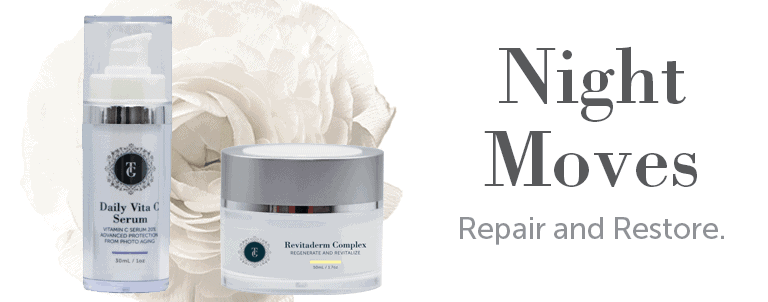The Power of Good Sleep Habits
Sleep: One of Life’s necessities. Human skin, our largest organ, acts as a powerful barrier, protecting us from harmful environmental factors, it regulates temperature and fortifies immunity. Therefore, care of the skin is critical.

Sleep: One of Life’s necessities. Does it impact the aging process and is the phrase “Get your beauty sleep” accurate?
“Get your beauty sleep” is in fact, is completely accurate.

Human skin, our largest organ, acts as a powerful barrier, protecting us from harmful environmental factors, it regulates temperature and fortifies immunity. Therefore, care of the skin is critical. However, in addition to its physical function it provides a portrayal of beauty and influences the perception of health, cleanliness and age. For example, we know from surveys that excess pigment on the skin can give a perception of being older. Dietary factors, lifestyle and stress have also been linked to aged skin but sleep is equally important.
A better understanding of sleep helps us understand why adequate daily sleep is vitally important for skin health. While life pushes us often in the wrong direction away from a relaxing night’s sleep it is vital for the body to rest, repair and grow. Fact remains that Sleep actually affects every aspect of your wellbeing, physical, emotional and spiritual.
Matthew Walker. Director of the Centre for Human Sleep Science, university of California warns us that sleep deprivation is not being take seriously:
We are facing a catastrophic sleep –loss epidemic that is causing a host of potentially fatal diseases. His research demonstrates that there is a powerful link between cancer, Alzheimer’s disease, diabetes, obesity, heart disease and many other conditions.” He states that “no part of our biology is left unscathed” by sleep deprivation, “it sinks down into every nook and cranny” and yet no one is doing anything about it. There are so many reasons why people do not sleep and in reality, as professionals we need to be asking this in our consultations.
Below are a few obvious ones to consider
- Excess stress
- Excess worry and over thinking
- From Grief
- With Pain
- Hormonal Imbalance
- Poor Health and Medications

Sleep can be considered as nourishment for the body and mind just like food and water. Sleep is a fundamental need: it’s the primary restorative process of the body. Lack of sleep and sleep debt contribute to almost all health issues. Deep sleep is the most vital. This is when the very important growth hormone is released. Evidence also suggests that sleep problems contribute to obesity and being over weight.
Two Hormones: Day and Night
Understanding the two Sleep Hormones
Serotonin can be described as our body’s natural happiness drug. It’s a feel-good hormone that increases positivity and relaxation, as well as helping us feel all-around more energized. This energy is particularly important because we all need it to get us going in the morning and wash away the lethargy that would otherwise keep us in bed. Seratonin is a precursor to the production of the all-important Melatonin
Melatonin is the hormone of darkness. The nickname refers to the fact that melatonin is produced in the pineal gland of the brain when you find yourself in a dark environment. As any sleep expert will tell you, it is incredibly important to kickstart the sleep cycle by turning off the lights and using black-out blinds or an eye mask in the bedroom. This is because the change in light causes messages to be sent from the eye to the brain telling it that more melatonin should be produced. The melatonin winds the body down to a more lethargic and sleep-ready state.
Melatonin is a very potent antioxidant. Antioxidants destroy free radicals that can damage cells and lead to cancer and also help to repair damage done by ultra violet rays during the day. Melatonin slows down the production of estrogen and prevents its over production while also suppressing the effects of epidermal growth factor and the hormone prolactin both of which increase cell division in the breast. Melatonin enhances the tumor fighting power of vitamin D, making it twenty -one hundred times stronger and slows tumor growth by as much as 70%. preventing metastasis.
Melatonin is extremely powerful in protecting against and fighting breast cancer; however, you have to go to bed at the correct time: 10 pm and sleep in a dark room. As soon as you go to sleep the melatonin rises immediately and then spikes again between midnight and 1:00am.
Sleep: Essential for Optimal Skin Maintenance.
With impaired sleep, hormone production shifts and metabolism altered. This produces stress in the entire body including the skin. Hormones to consider, that each have a significant role in skin aging are as follows:
- Cortisol
- Melatonin
- D.H.E.A.
- Insulin
- Estrogen
- Progesterone
- Testosterone
All of these are negatively affected by sleep deprivation. Adequate levels of each are required for the maintenance of a more youthful and healthy skin and in most cases complete body health.
Cortisol
Cortisol is highest in the morning, peaking at 7- 9am, stimulating you to get out of bed raising your blood glucose levels that have fallen over night. There is a significant drop by noon and another small drop by the end of the day when you come home from work. Finally, it is at its lowest when you go to bed.
While you sleep, your body heals. Your adrenal glands, that are in fight and flight mode during the day, creating inflammation within the body, repair and restore themselves between 10pm and 2a.m. Sleep is your best anti-inflammatory for healing and restoring body function. When you wake well rested it improves our outlook on life, improving mental health. Increasedcortisol produced during the day due to excessive unproductive stress to include anxiety does not allow the body to shut down and sleep.
Too much Cortisol has a negative effect on the brain by suppressing Serotonin, the hormone important for mood and precursor for sleep. This culminates in sleep problems, depression and negative mood. It also then contributes to increased anxiety, agitation and irritability while creating neurological disorders and impaired memory and learning.
Cortisol, Sleep and Skin
The extra Cortisol also causes a biochemical reaction that depletes Vitamin C and B. Vitamin C is required for collagen production and so skin becomes less elastic forming more wrinkles over time. Elevated Cortisol due to excess stress signals sebaceous glands to produce more oil, leading to acne and inflammation. Stress and the accompanying heightened Cortisol levels contribute to other skin concerns such as dullness, thinning, reduced elasticity and wrinkles.
Insulin
With poor sleep insulin levels and glucose intolerance increase. When the body lacks rest and inadequate sleep, cortisol increases, which in turn releases more insulin and glucose intolerance. Glucose intolerance itself is stressful on the body and this produces a harmful cycle
Stress and Your Hormones: Estrogen, Progesterone, Testosterone
Cortisol suppresses DHEA, the mother of Hormones and in turn suppresses progesterone, causing irregular periods, heavy bleeding, eventually miscarriage and in peri-menopause often hysterectomy. Low progesterone in Menopause contributes to poor sleep, hot flashes, high anxiety and feelings of not being able to cope (more stress) High cortisol also causes testosterone to be converted to estrogen causing reduced libido and estrogen dominance.
With fatigue, stress or aging DHEA levels decline. Adequate DHEA levels assist in the production of collagen while also decreasing Collagenase enzymes that that destroy collagen. In addition, DHEA assists in the production of sebum which aids in skin moisturizing and fortifying the skin barrier.
Estrogen insufficiency causes a reduction in Epidermal and Dermal thickness. The skin becomes more vulnerable to free radical damage and oxidative stress. These lowered levels of Collagen lead to thinner skin and more fine lines as early as the late 30’s and further impaired with sleep deprivation.
Testosterone also plays a key role especially in men especially with advancing age but also lowered further by poor quality sleep. Testosterone contributes to skin elasticity, dermal thickness and density.

Sleep, skin and Aging
Skin aging is influenced by both Intrinsic factors, which are internal factors and extrinsic factors include such things as pollution, UV exposure and blue light exposure. Poor quality sleep increases the influence of intrinsic factors; however, research shows us the extrinsic factors do in fact account or 80% -90% of all aging. These include all things we do have control over.
Cellular repair and renewal begin with sleep onset and are most active during deep sleep. These processes boost skin integrity and begin the recovery of environmental factors such as UV light. UV light increases inflammation as does poor quality sleep. Together they act as a dual threat to the aging process, accelerating the process. DNA repair during sleep is critical and as previously mentioned, Melatonin is critical in this process acting as a free radical scavenger.
Solutions for A Better Sleep
Sleep in a dark room. People exposed to light at night have shallower sleep and are more likely to experience mini-arousals during the night in a 2013 study in the journal Sleep Medicine. “Melatonin levels are suppressed by even low levels of light, and that in turn is associated with disturbed sleep,” says Phyllis Zee, MD, director of the Sleep Disorders Center at Northwestern University.
If you read on a tablet, switch from a white background with black font to a black background with white font, which emits less light. Also, dim your device to half brightness or less, and hold it 14 inches away from your eyes.

Exposure to natural light during the day can improve your sleep. Researchers at Northwestern recently found that people whose workplaces had windows got 173% more light exposure during the day and slept an average of 47 more minutes per night than their windowless coworkers. Natural daylight may enhance melatonin production come nightfall—one key to a solid night’s slumber.
- Eat 3 nutritious meals a day.
- Exercise regularly.
- Go to bed by 10pm
- Eliminate or restrict stimulants such as caffeine.
- Wear comfortable clothing to bed.
- Avoid hot and spicy foods at dinner
- Do not bring work related material into the bedroom.
- Do not have TV’s in the bedroom.
- Avoid alcohol. It interferes with Melatonin levels. It may help you fall asleep but it also causes you to wake up in the middle of the night.
- Avoid EMF’s. Electromagnetic frequencies can disrupt the flow of Melatonin
Before Bed Bites
- Have a slice of turkey or chicken, or a banana before heading to bed. These foods contain tryptophan, an amino acid that’s used to make serotonin. Serotonin is a brain chemical that helps you sleep.
- Carbohydrates help tryptophan enter the brain. Try a glass of warm milk (milk contains tryptophan) and a cookie, or warm milk with a spoonful of honey.
- Avoid big meals late in the evening. You need three to four hours to digest a big meal.
Spicy or sugary food, even at suppertime, is usually a bad idea. Spices can irritate your stomach, and when it tosses and turns, so will you. Having a lot of sugary food especially chocolate, which contains caffeine can make you feel jumpy.
Herbal Helpers
Valerian Root
- Helps people fall asleep faster without the ‘hangover’ affect of some sleeping pills. It binds to the same receptors in the brain that tranquilizers such as diazepam bind to. Take two capsules of valerian root an hour before bed.
Passionflower
- ‘Take 4,000 to 8,000 milligrams of dried passionflower capsules. Passionflower is widely used as a mild herbal sedative.


Written By Trish Green DiHom(Pract) B.Ed Cidesco Diplomat. Bach Flower Therapist.
Trish is a graduate of the Victoria University of Manchester, Trish is a teacher with 35 years of experience in the education field. For twenty of those years she has been an educator in the esthetics industry. She is an advocate for raising standards in education for Complementary Health Care Practitioners with special interest in Aromatherapy. Her career in the field of natural health and esthetics is wide and varied. From Doctor of Homeopathy to Cidesco diplomat, Trish is a dedicated professional, committed to ongoing education and the education of others.
